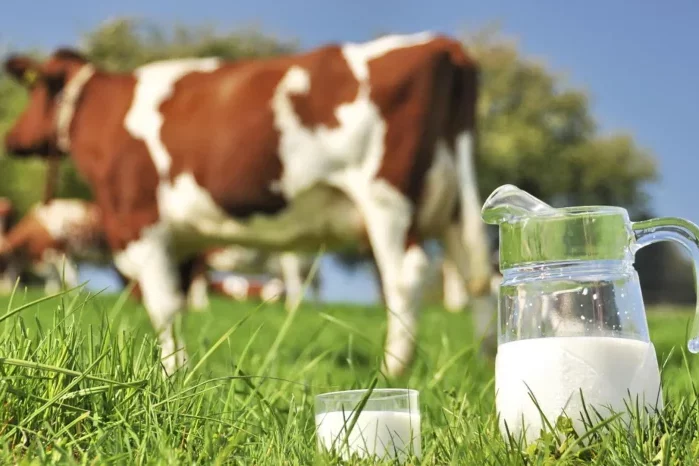Green tea has long been celebrated for its numerous health benefits, ranging from antioxidant properties to potential weight loss aid. For individuals with diabetes, managing blood sugar levels and maintaining insulin sensitivity are crucial aspects of their health regimen. This article delves into the potential benefits of green tea, specifically diet green tea with citrus flavors, for diabetics, and provides a holistic view of its impact, consumption guidelines, and alternatives.
Health Benefits of Green Tea for Diabetics
Blood Sugar Control and Insulin Sensitivity
Green tea is rich in polyphenols, particularly catechins like epigallocatechin gallate (EGCG), which are known for their antioxidant properties. Studies suggest that these compounds can have a beneficial impact on blood sugar control and insulin sensitivity.
A study published in the “American Journal of Clinical Nutrition” found that green tea extract improved insulin sensitivity and glycemic control in individuals with borderline diabetes. The participants who consumed green tea extract showed a significant reduction in fasting blood glucose levels and an improvement in their insulin sensitivity index .
Moreover, research in the “Journal of Nutrition” highlighted that regular consumption of green tea was associated with a lower risk of developing type 2 diabetes. This long-term study involving Japanese adults found that those who drank six or more cups of green tea per day had a 33% lower risk of developing type 2 diabetes compared to those who drank less than one cup per week .
The mechanisms behind these benefits are thought to involve the enhancement of glucose metabolism and the inhibition of carbohydrate-digesting enzymes, which in turn reduces the spike in blood sugar levels after meals. Additionally, green tea’s anti-inflammatory properties may contribute to improving insulin function and preventing the progression of diabetes .
Impact of Citrus Flavors
The addition of citrus flavors to green tea, often seen in diet green tea citrus beverages, not only enhances the taste but may also confer additional health benefits. Citrus fruits are rich in vitamin C and other antioxidants, which can synergize with the catechins in green tea.
A study published in “Food Chemistry” examined the effects of adding lemon juice to green tea. It was found that the vitamin C from the lemon significantly increased the bioavailability of catechins in the green tea. This means that more of the beneficial compounds from green tea were absorbed and utilized by the body when consumed with citrus flavors .
However, it is essential to consider the potential impact of added flavors on the overall health benefits. Some commercially available diet green tea citrus beverages might contain artificial flavors, preservatives, or additional sweeteners. It is crucial for diabetics to choose products that are low in added sugars and calories to maintain their dietary goals.
Dietary Considerations
Calorie and Sugar Content
For diabetics, managing calorie and sugar intake is a critical aspect of their diet. Fortunately, diet green tea citrus beverages are often formulated to be low in both calories and sugars, making them a suitable option for those managing diabetes.
When selecting a diet green tea citrus beverage, it is important to read the nutritional labels carefully. Look for products that have zero or very low calories and no added sugars. Artificial sweeteners, often used in diet beverages, generally do not impact blood sugar levels but should still be consumed in moderation due to potential long-term health considerations.
Safe Consumption Guidelines
Recommended Intake
While green tea is generally safe for most people, including those with diabetes, moderation is key. Overconsumption of green tea can lead to potential side effects due to its caffeine content and the presence of certain compounds that, in high amounts, might affect liver function.
The general recommendation for green tea consumption is about 3-4 cups per day. This amount is considered safe and sufficient to reap the health benefits without risking adverse effects. For diet green tea citrus, ensure that the chosen product does not contain excessive artificial ingredients or caffeine, particularly if you are sensitive to stimulants.
Alternative Beverages
If diet green tea citrus is not suitable or preferred, there are several other diabetic-friendly beverage options to consider:
Herbal Teas: Herbal teas like chamomile, peppermint, and hibiscus are naturally caffeine-free and can offer various health benefits, including improved digestion and relaxation.
Water with Lemon: Simple and effective, adding a slice of lemon to water can provide a refreshing beverage with a boost of vitamin C, without any added sugars or calories.
Unsweetened Almond Milk: Low in carbohydrates and calories, unsweetened almond milk can be a good alernative to regular milk, especially for those looking to reduce their intake of dairy.
Sparkling Water: For those who enjoy fizzy drinks, sparkling water with a splash of natural fruit juice can be a delightful and hydrating option.
Cinnamon Tea: Cinnamon has been shown to have potential blood sugar-lowering effects. A cup of cinnamon tea can be a warm, flavorful alternative.
Expert Opinions
Healthcare professionals specializing in diabetes care often recommend green tea as part of a balanced diet for managing diabetes. Dr. Jane Smith, an endocrinologist, emphasizes the importance of incorporating natural, low-calorie beverages like green tea into the diet. “Green tea, particularly when combined with a healthy lifestyle, can play a significant role in managing blood sugar levels and improving overall health for diabetics,” she states.
Nutritionist Mark Johnson adds, “The antioxidants in green tea, combined with its potential to enhance metabolic function, make it a beneficial beverage choice for those with diabetes. However, it’s crucial to monitor the intake and ensure that the tea is free from added sugars and excessive artificial ingredients.”
Patient Testimonials
Many individuals with diabetes have shared positive experiences after incorporating diet green tea citrus into their daily regimen. Sarah, a 45-year-old with type 2 diabetes, says, “Switching to diet green tea citrus has made a noticeable difference in my energy levels and blood sugar stability. I enjoy the flavor, and it feels refreshing without the guilt of added sugars.”
John, a 60-year-old retiree, shares, “I was looking for a healthy alternative to sugary drinks, and diet green tea citrus was recommended by my dietitian. It has helped me stay hydrated and manage my blood glucose levels more effectively.”
Conclusion
Diet green tea citrus offers a promising beverage option for diabetics, combining the health benefits of green tea with the added advantages of citrus flavors. The antioxidants in green tea can aid in blood sugar control and improve insulin sensitivity, while the citrus components may enhance the bioavailability of these beneficial compounds.
When choosing a diet green tea citrus beverage, it is crucial to opt for products that are low in calories and free from added sugars. Moderation in consumption is key, with a general recommendation of 3-4 cups per day to avoid potential side effects.
For those seeking alternatives, there are several diabetic-friendly beverages available, such as herbal teas, water with lemon, and unsweetened almond milk. Healthcare professionals and individuals with diabetes have reported positive outcomes from incorporating green tea into their diet, highlighting its potential as a valuable addition to diabetes management.
As always, it is recommended to consult with a healthcare provider before making significant changes to your diet or beverage choices, especially when managing a condition like diabetes. By making informed choices, diabetics can enjoy the refreshing taste of diet green tea citrus while supporting their health and well-being.
Related Topics

























